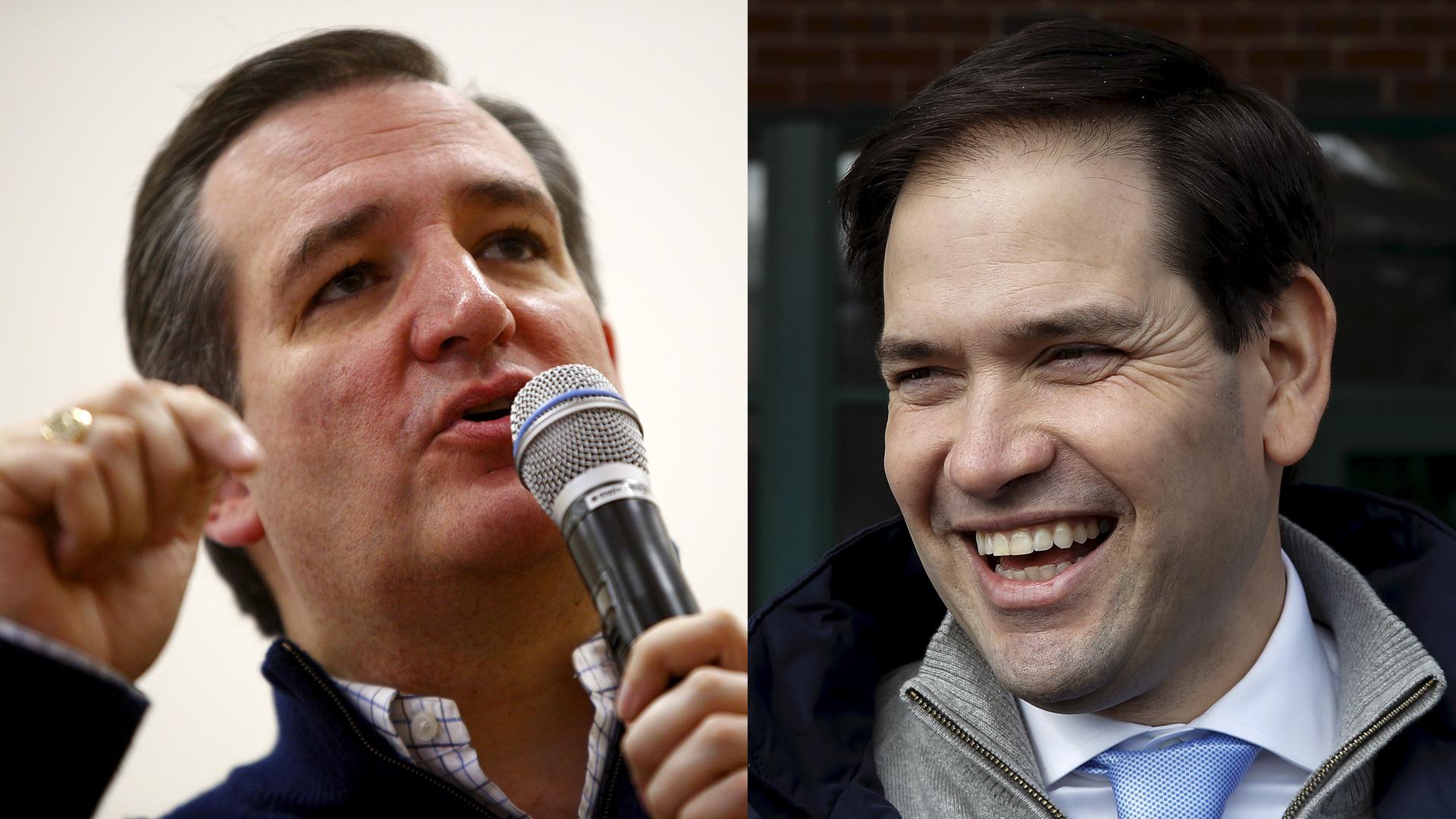Would Ted Cruz and Marco Rubio do better if they were Afro-Latinos?
Republican presidential candidates Ted Cruz, left, and Marco Rubio, right, are Latino, but their experiences as such are different from a large number of the US Latino population.
Ted Cruz is the first Latino political candidate to win the Iowa caucus. And Marco Rubio, who came in second in Iowa and fifth in New Hampshire, has also gone further than most Latino candidates before him.
But they're not winning with the support of other Latinos.
"It's quite possible" that the two Latino presidential candidates in the GOP might make a different impact on the race, says political reporter Patricia Mazzei, if they didn't look like so many other presidential candidates: white and male.
Mazzei writes for the Miami Herald, where she published a piece contrasting senators Ted Cruz and Marco Rubio's upbringing and heritage, as it comes to their Hispanic-ness.
While it's true that Cruz made history by being the first Latino to win the Iowa caucuses, Mazzei notes "he grew up more as a Texan," and in her piece explains:
His father did flee political persecution — from the regime of Castro predecessor Fulgencio Batista — but built his life in Texas, where his son, Rafael Edward, who eventually chose the nickname “Ted” instead of the original “Felito,” did not live surrounded by Cubans.
Their common thread: Cruz’s father and Rubio’s grandfather taught them to abhor the communist revolution.
“Their identity as Cubans is wound up with that whole opposition to the Cuban government, which they’ve learned since they could remember,” Pérez said. “Cruz doesn’t come out of Miami and therefore doesn’t have the upbringing that is culturally Cuban, but I think politically he’s had very much the same values.”
The candidates' old-school political philosophy when it comes to the Cuban government — and immigration issues in general — might make them less relatable to some Hispanic voters.
"You did not hear a lot of celebration from the Latino community [when Cruz won Iowa] and the people I've spoken to suggest that's because they don't see him culturally as Latino," Mazzei says, "and they don't see him speaking to their needs as Latinos."
And although the Cuban culture is ingrained in Rubio and Cuban Americans in South Florida have largely contributed to his political success, Mazzei says his race and sex might stunt his appeal to some Hispanic voters anyway.
"They are white males," she says. "They don't sound different, they don't have an accent. So perhaps that makes them harder to relate to people as Hispanics, because you don't think of it right away when you see them."
So, were these candidates Afro-Latino or of native heritage, would voters who identify as Hispanic rally around them more decisively?
Mazzei says "these are the kind of textured nuances of American politics that we have not seen play out because we've never had Hispanics get this far in the presidential nomination."
